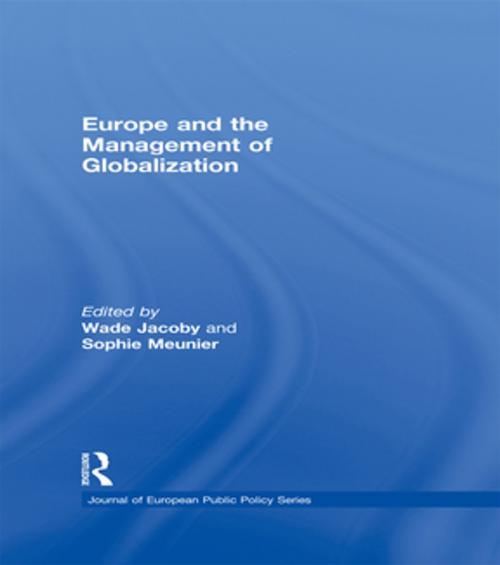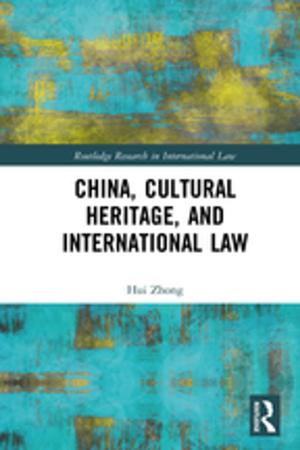Europe and the Management of Globalization
Nonfiction, Social & Cultural Studies, Political Science, Government, Democracy, International, International Relations| Author: | ISBN: | 9781317986188 | |
| Publisher: | Taylor and Francis | Publication: | September 13, 2013 |
| Imprint: | Routledge | Language: | English |
| Author: | |
| ISBN: | 9781317986188 |
| Publisher: | Taylor and Francis |
| Publication: | September 13, 2013 |
| Imprint: | Routledge |
| Language: | English |
European politicians often speak of their efforts to 'manage globalization.' At one level, this is merely a rhetorical device to make globalization more palatable to citizens and prove that policy-makers are still firmly in control of their country’s fate. This volume argues that the advocacy of managed globalization goes beyond rhetoric and actually has been a primary driver of major European Union (EU) policies in the past twenty years. The EU has indeed tried to manage globalization through the use of five major mechanisms: 1) expanding policy scope 2) exercising regulatory influence 3) empowering international institutions 4) enlarging the territorial sphere of EU influence, and 5) redistributing the costs of globalization. These mechanisms are neither entirely novel, nor are they always effective but they provide the contours of an approach to globalization that is neither ad hoc deregulation, nor old-style economic protectionism.
The recent financial crisis may have seemed initially to vindicate the European efforts to manage globalization, but it also represented the limits of such efforts without the full participation of the US and China. The EU cannot rig the game of globalization, but it can try to provide predictability, oversight, and regularity with rules that accommodate European interests.
This book was based on a special issue of Journal of European Public Policy.
European politicians often speak of their efforts to 'manage globalization.' At one level, this is merely a rhetorical device to make globalization more palatable to citizens and prove that policy-makers are still firmly in control of their country’s fate. This volume argues that the advocacy of managed globalization goes beyond rhetoric and actually has been a primary driver of major European Union (EU) policies in the past twenty years. The EU has indeed tried to manage globalization through the use of five major mechanisms: 1) expanding policy scope 2) exercising regulatory influence 3) empowering international institutions 4) enlarging the territorial sphere of EU influence, and 5) redistributing the costs of globalization. These mechanisms are neither entirely novel, nor are they always effective but they provide the contours of an approach to globalization that is neither ad hoc deregulation, nor old-style economic protectionism.
The recent financial crisis may have seemed initially to vindicate the European efforts to manage globalization, but it also represented the limits of such efforts without the full participation of the US and China. The EU cannot rig the game of globalization, but it can try to provide predictability, oversight, and regularity with rules that accommodate European interests.
This book was based on a special issue of Journal of European Public Policy.















